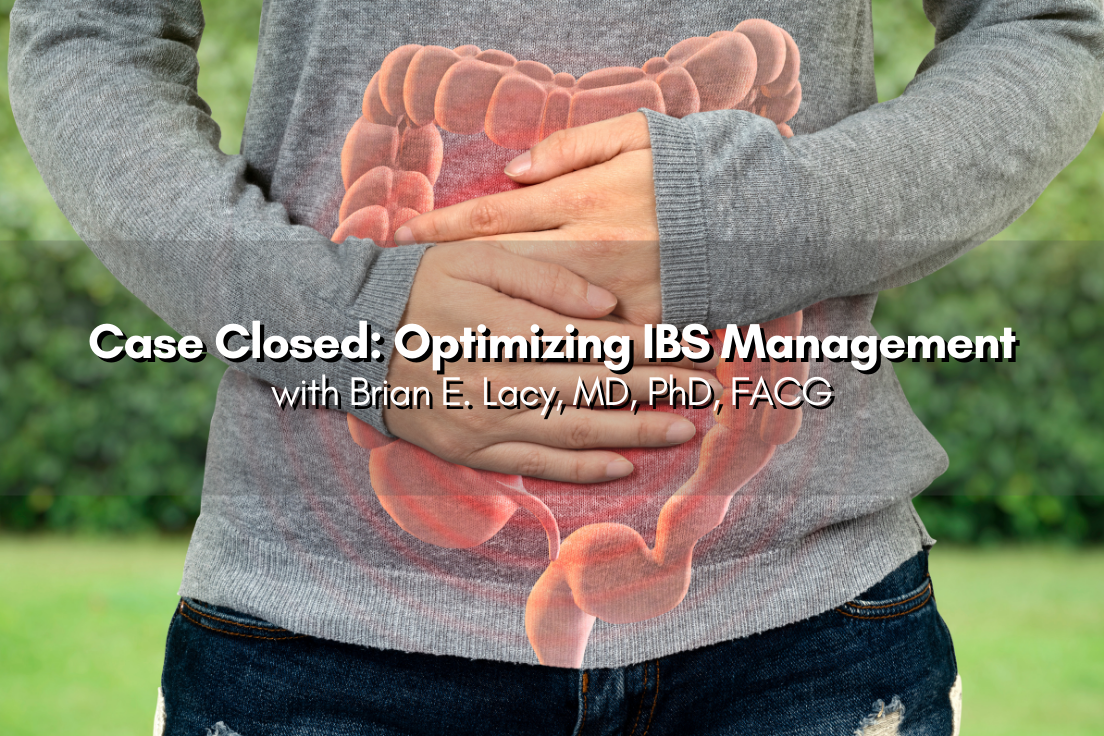Irritable bowel syndrome (IBS) is one of the most common disorders of gut-brain interaction (DGBI) and has a significant impact on patients and the health care system. Having no medical test that can confirm or exclude IBS coupled with the fact that symptoms can mimic those associated with organic diseases poses a challenge for diagnosis. In this 0.5 CME activity with Brian E. Lacy, MD, PhD, you will learn more about making the correct diagnosis in IBS, which can improve patient care, minimize unnecessary testing, and lead to the most appropriate treatment.
Management includes a biopsychosocial approach involving lifestyle and diet changes as well as pharmacological treatment with antispasmodics, neuromodulators, motility agents, and antidepressants. The success of treatment strategies is increased by a strong patient-physician relationship, so you will also learn strategies to improve communication with your patients.
You will have the opportunity to review five IBS cases as Dr. Lacy discusses different aspects of patient management including diagnosis, IBS-C and IBS-D treatment, pain management, and improving patient-provider communication.
After this activity, you will be able to:
- Evaluate approaches for the timely recognition and diagnosis of IBS.
- Identify optimal treatment strategies per current IBS guidelines.
- Assess current and emerging strategies for managing IBS-related pain.
- Discuss shared decision-making and patient communication strategies for IBS patients.












